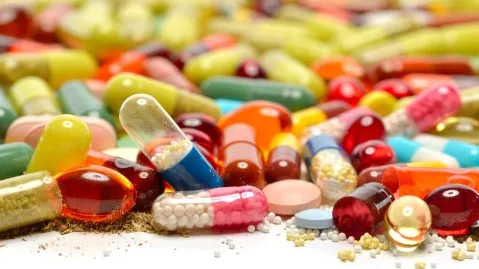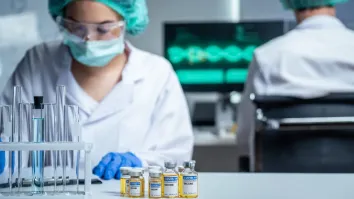
India locally develops 35 previously imported pharma ingredients
The country is expected to remain keen to lessen pharma import dependency.
India’s production-linked incentive (PLI) scheme for the pharmaceutical sector has started yielding results as 35 previously imported active pharmaceutical ingredients (APIs) are now being developed in India, according to a report.
The PLI scheme sought to reduce importation by promoting the domestic manufacturing of pharmaceuticals. The Indian government approved the scheme last year targeting India’s pharmaceutical sector for enhancing drug manufacturing capabilities and expanding exports.
The scheme sought to enhance India's manufacturing capabilities by raising investment and production and contributing to product diversification to high-value goods in the sector, whilst also creating global champions out of India who has the potential to grow in size and scale using cutting-edge technology.
READ MORE: Digital healthcare demand to rise in India: report
Fitch Solutions noted that while domestic pharmaceutical companies will aggressively work on reducing the dependence on Mainland China for raw materials, it is still expected to take time for a paced indigenisation.
Nonetheless, India is still expected to remain keen to secure its drug market from external shocks, lessen import dependencies, and continue support for the domestic production capabilities in APIs.
Fitch noted that the Department of Pharmaceuticals has launched three schemes to incentivise global and domestic players to enhance investment and production in critical bulk drugs and high-value products, seeking to ensure greater drug security and boost the capacity for domestic production for these categories.
“The schemes are envisioned to ensure greater resilience of the Indian pharmaceutical industry to external shocks and contribute significantly to achieving affordable healthcare in the country on a sustained basis,” the report stated.
For several years, the pharmaceutical industry of India has been heavily reliant on China for raw materials. According to the Trade Promotion Council, India’s API reliance on China is estimated to be 85%. For some drugs, such as paracetamol and ibuprofen, the dependence is almost 100%, Fitch noted.
“Including APIs, chemicals and key starting materials that get reported in various other categories, India’s imports from China are estimated to be about $2b (INR152.5b) a year. Therefore, this overdependence poses a major risk of severe drug shortage and has a direct bearing on the drug security of the country,” the report noted.
With the introduction of the PLI scheme, production of around 35 APIs has already begun across 32 plants in India and this will reduce India's import dependence on China. As a result, India’s pharmaceutical imports are expected to grow only at a compound annual growth rate (CAGR) of 10%, from a previously estimated11.5%.
Fitch noted that reducing dependence on China will not be easy to achieve, as Indian drug companies are looking to local makers of APIs or trying to make them in-house in a bid to end their reliance on China.
“With that said, in India, any decoupling from China must be strategic, with significant policy support, and it will take time for a paced indigenisation. Nevertheless, developing domestic capabilities in the medium to long term and reducing dependence on China would be strategically prudent,” the report stated.



















 Advertise
Advertise






